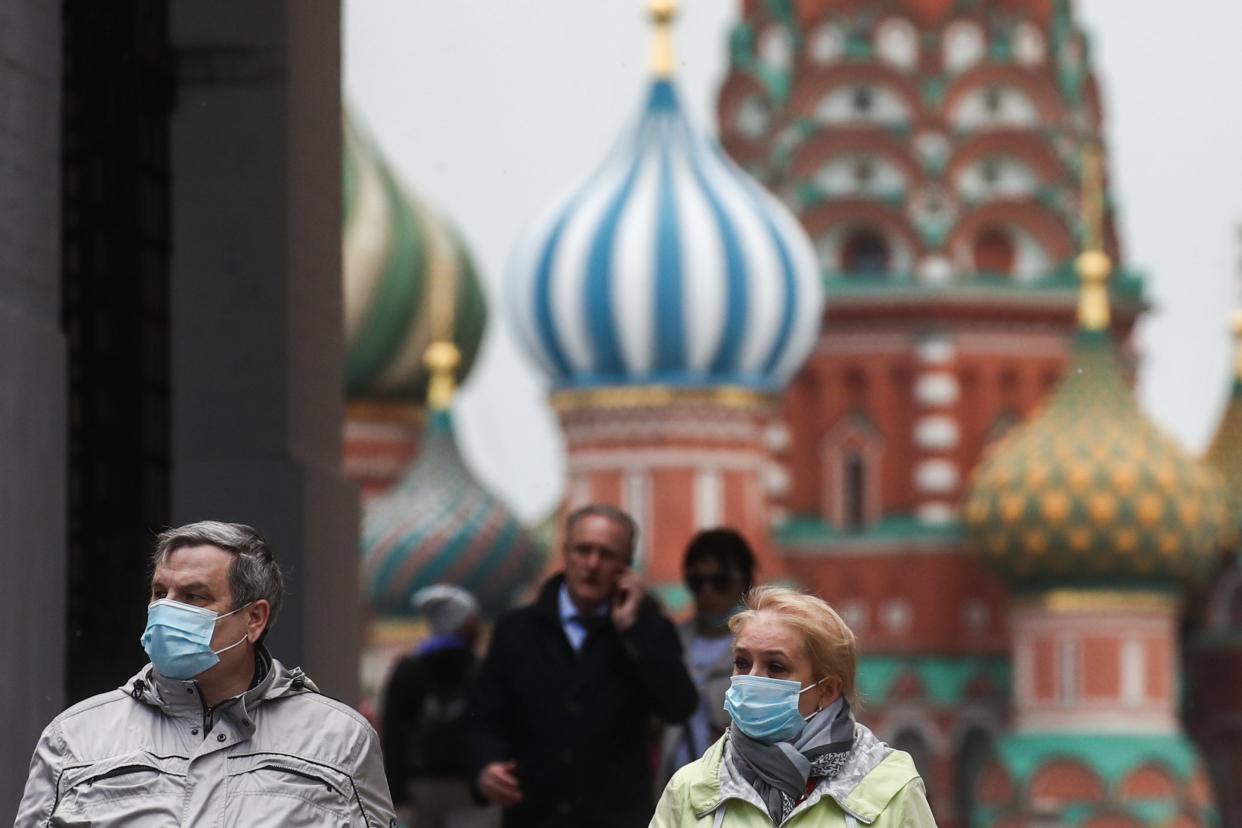‘People will think bad things’: Russian governor appears to tell staff to change 'faked' coronavirus figures in leaked audio

A leaked audio file purporting to show a regional governor instructing staff to alter data has cast doubt on the reliability of Russia’s Covid-19 statistics.
The recording, released on anonymous social media channels on Monday morning, is muffled and somewhat difficult to decipher. But the request to “change figures” — by a man whose voice appears to be that of Lipetsk governor Igor Artamonov — is clear enough. It is unclear from the recording what data this refers to, but their publication, the voice says, would make “people ... think bad things about [the] region."
The two-minute conversation contains such phrases as: “We need to correct this, to convince Moscow that we don’t have 72 [unclear]”, “don’t put the region’s neck on the line”, “we are at a critical stage, someone’s head needs to to be chopped off”, and “don’t tell me you are soft. Is it really so hard to change the data?”
At one point, the unidentified interlocutor pushes back and says changing the data would not be straightforward. “It’s not a matter of one click and we are done,” he says. “It’s complicated.”
“Then train yourself to do it!” says the first voice. “We’re already trained,” comes the reply.
In a comment to Russian media, Mr Artamonov confirmed the authenticity of the recording but insisted it had been unfairly interpreted. The conversation was not, he said, an attempt to underreport figures. On the contrary, it was an attempt to correct double reporting on testing figures.
“We have three services,” Mr Artamonov told the Znak publication. “Some give data to one place, and others to another [...] You get a situation where the figures are not entirely factual if you don’t keep a handle on them.”
According to the latest official data, Lipetsk region has recorded just five fatalities from 1696 diagnosed cases of Covid-19. This corresponds to a case fatality rate of 0.29 per cent. In other words, like the rest of Russia, well below the 6.42 per cent current rolling world average.
Whatever the truth behind the leaks, doubts about Russia’s Covid-19 data have persisted for several weeks. At a minimum, problems in diagnostics have produced a de facto underreporting. Anecdotally, local tests are no more than 10 per cent accurate, and Russia doesn’t report suspected coronavirus deaths. If you aren’t diagnosed with Covid-19 you can’t die from it.
But there is also evidence of misreporting of figures, with coronavirus deaths in some cases deliberately assigned to other illnesses.
In Dagestan, for example, hospitals have been overwhelmed since the end of April, in scenes akin to the crisis in Italy’s Lombardy region. Pharmacies across Dagestan ran out of basic medicine like antibiotics, and yet despite the medical collapse, official figures were until last Sunday reporting just 29 deaths.
By comparison, a doctor in one hospital told The Independent that seven of his colleagues had died.
Russian authorities have angrily rejected any accusation they might be cooking the books. Earlier this month, a group of MPs referred The Financial Times and The New York Times to the prosecutor’s office for articles suggesting death tolls were higher than reported. Maria Zakharova, spokesman for the foreign ministry, also appeared to suggest they may have their reporting credentials removed.
In an interview on state TV on Sunday evening, Anna Popova, the head of Russia’s consumer protection watchdog, claimed Russia recorded “every” coronavirus infection and death.
“Russia is the only country in the world to do post-mortems of all Covid-19 cases,” she said. “There is no margin for error.”
Read more
How Russia’s Dagestan ignored ‘hundreds’ of coronavirus deaths
Seven charts that show the true scale of the UK coronavirus outbreak
‘They can blame it for everything’: What coronavirus means for Brexit
The Americans who think that coronavirus is a hoax
Do you need a face mask and where can you buy one?
UK lockdown: Can I see my family and friends under new rules?


